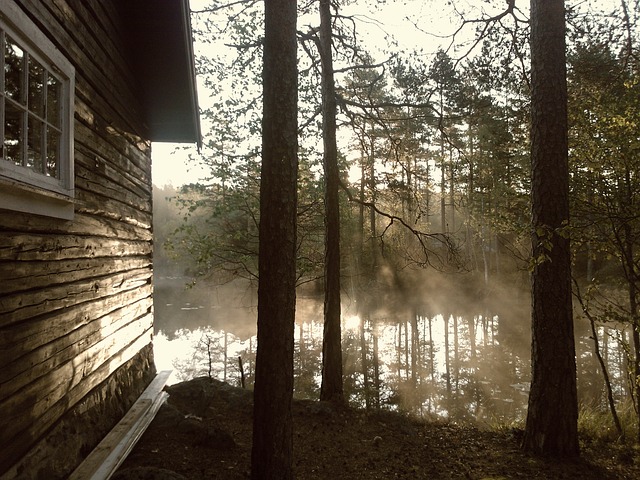Mackay Insurance Blog
Choosing the Right Cottage Insurance

Canada is an undeniably stunning country. We are rich in natural beauty, with a whopping total of 44 national parks to enjoy nationwide!
But most Canadians know you don't have to visit a national park site to relish our wondrous landscape—which also explains our zeal for owning seasonal second homes, often known simply as "cottages."
In fact, many Canadians are so keen to own a cottage they would be willing to cut their spending, go in with others to make the purchase, buy a "fixer-upper" place, or even just buy the land now and save to build on it later.
But once your dream cottage is finally yours, you also need to make sure you protect it. That is where knowing how to choose the right type of insurance policy is essential.
As the warm season approaches, these tips can help you evaluate your existing cottage insurance policy or select a new policy for the cottage you just purchased. If you find you have questions or need help picking a policy, we are happy to be of assistance!
Key Questions to Ask Yourself
If you have just bought your first cottage, you may not be sure yet how to answer some of these questions. But your answers will be important to determine what type of insurance and how much insurance you need, so think through these questions.
How often do you plan to visit your cottage?
If you plan to visit the cottage every weekend during the warm season, you may find your insurance premiums are lower than if you visit only occasionally. This is because you will be able to keep a much closer eye on your cottage and perform minor maintenance before a small issue turns into a big issue.
Do you plan to rent it out to other tenants?
Different insurers have different approaches when a cottage owner wants to list their seasonal property for rent. In most cases, if you have a fire alarm installed and you have a local person who is willing to check on the property before and after each short-term tenant visit, you will find coverage to be more affordable (although still higher than if you are the sole occupants).
As well, if you plan to rent to only people you already know, you may pay lower premiums than if you plan to rent your cottage out to strangers.
Some insurers place a cap on the number of weeks per year that a cottage owner can rent out their property, while others do not. In some cases, choosing a commercial insurance policy rather than a residential secondary home insurance policy will give you the coverage you need to earn extra rental income on your cottage and enjoy peace of mind that you are properly insured.
Do you intend to keep your cottage open year-round?
Insurers typically offer lower rates to cottage owners who have year-round road access to their cottage. This is mainly because of fire risks. If a cottage catches fire and there is no way to get to it during the cold season, claims will be much higher.
Of course, if your cottage doesn't have a road that is accessible year-round, you may still be able to get lower rates if you can find someone who lives in the area to check on it during the cold season. Installing a fire alarm can sometimes also help keep rates more economical.
Will your cottage serve as your primary or secondary residence?
In most cases, cottage owners declare a cottage as a secondary residence at least until they retire. In this case, often cottage owners will choose to add the cottage to their primary residence insurance policy as a seasonal or secondary residence.
If you do declare your cottage as your primary residence, you will have the usual tax advantages, as with any primary residence. In this case, you would need a full homeowner policy rather than a seasonal property policy.
Rider Options for Your Seasonal Insurance Policy
Most seasonal cottage insurance is issued on a named perils basis as opposed to all-risks coverage that is available on a comprehensive (primary residence) insurance policy.
The term "named perils" means there is a list of specific perils you are purchasing insurance to cover, such as fire, smoke damage, theft, or vandalism.
Depending on your cottage location and unique situation, adding on these riders may also make sense:
-
Animal damage. Large, hungry wildlife such as bears or small, hungry wildlife such as raccoons can inflict a surprising amount of damage on an unattended cottage.
-
Water or flood damage. Burst water pipes or sewer pumps or flood damage typically isn't covered in a standard seasonal cottage policy, but it may be available for an additional premium.
-
Cottage contents insurance. If you plan to leave certain high-value items at your cottage (rather than taking them back and forth with you, which would keep them covered under your primary homeowner's policy), you may want to purchase additional contents insurance coverage.
-
Recreational vehicles or watercraft. If you plan to store boats, jet skis, off-road vehicles or other recreational-use vehicles at your cottage, talk to your broker and be sure they are correctly insured.
-
Storage sheds or detached spaces. If you have additional storage units or shelter sites for boats or off-road vehicles, check to be sure your seasonal insurance policy offers sufficient coverage for these as well.
Contact Mackay Insurance for Help
Cottage insurance, like any other insurance policy, comes with its own terminology and learning curve.
While it can take some time to understand the ins and outs of this specialized insurance product, the ongoing peace of mind you get from buying the right policy that fully protects your cottage investment is literally priceless.
Contact us for help today!
Click here to get an instant, online, no obligation cottage insurance quote now.
